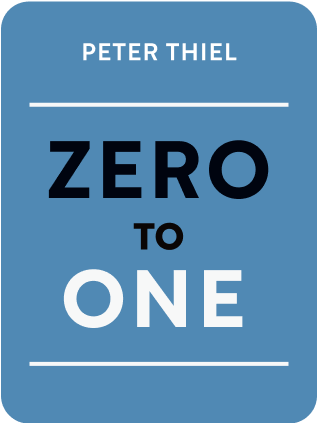

This article is an excerpt from the Shortform summary of "Zero To One" by Peter Thiel. Shortform has the world's best summaries of books you should be reading.
Like this article? Sign up for a free trial here .
How do you determine your target market as a startup? Should you engage in head-to-head competition?
Entrepreneur Peter Thiel offers advice on these and other startup matters in his book Zero to One: Notes on Startups. He shares strategies related to choosing a target market, dealing with competition, and building a monopoly.
Continue reading for four startup tips from the book.
Zero to One: Notes on Startups
Even if your startup has characteristics that set you up for success, you still have to plan your moves intelligently to realize its potential. In Zero to One: Notes on Startups, Thiel gives four pieces of strategic advice on how to start a successful business.
1) Choose Your Initial Market Carefully
Thiel advises you to start out targeting a small market, because your startup will be a small company, and you won’t have the resources to monopolize a large market yet. He warns against attempting to secure a small share of a large market, reiterating that if you’re a small player in a big market, competition will prevent you from making a profit. That said, he also cautions that your market needs to contain enough real customers to be profitable.
He illustrates this by recounting how PayPal targeted PalmPilot users as its first market, but found that they were too few and far between to represent a valuable market sector. Then they switched to targeting eBay sellers and found a small but lucrative market that they quickly dominated.
2) Expand Into Adjacent Market Sectors
Once you’ve dominated a small market sector, slowly expand into related markets that are a bit broader.
Thiel illustrates this concept with the example of Amazon. After establishing themselves as the dominant online book dealer, they expanded into selling other types of media and eventually all kinds of consumer products.
3) Don’t Pit Yourself Against the Establishment
As we’ve discussed, Thiel sees head-to-head competition as a death-knell to profitability. He warns that high-tech startups often fall into the trap of competing with established companies under the guise of “disrupting the industry.”
It’s true that sometimes new technologies disrupt the market, displacing established market leaders. But in Thiel’s experience, all too often, a startup will claim to be “disrupting the market” when in reality they are merely improving upon an existing technology and trying to take market share away from established players. Don’t fall into this trap.
Thiel conjectures that if your product is truly innovative, it will be unique enough to create a new market: There won’t be an existing market for you to disrupt or a direct competitor for you to displace. Focus on creating something that’s new enough to have no competition, not on creating a product to disrupt existing markets.
4) Secure Your Position as the Final Authority
Your goal is to build a monopoly that will generate long-term profits by introducing a revolutionary product that no one else can match. Thiel observes that to do this, generally you need to be the first to introduce your product. In industries where network effects and economies of scale are significant, the first product to rise to prominence becomes almost impossible to compete with.
As Thiel explains, this is known as the “first-mover advantage,” and he advocates using it to good effect. However, he also cautions that moving first is merely a means to an end, not an end in itself.

———End of Preview———
Like what you just read? Read the rest of the world's best summary of Peter Thiel's "Zero To One" at Shortform .
Here's what you'll find in our full Zero To One summary :
- Why some companies genuinely move the world forward when most don't
- How to build a company that becomes a monopoly (and why monopolies aren't bad)
- Silicon Valley secrets to selling products and building rockstar teams






